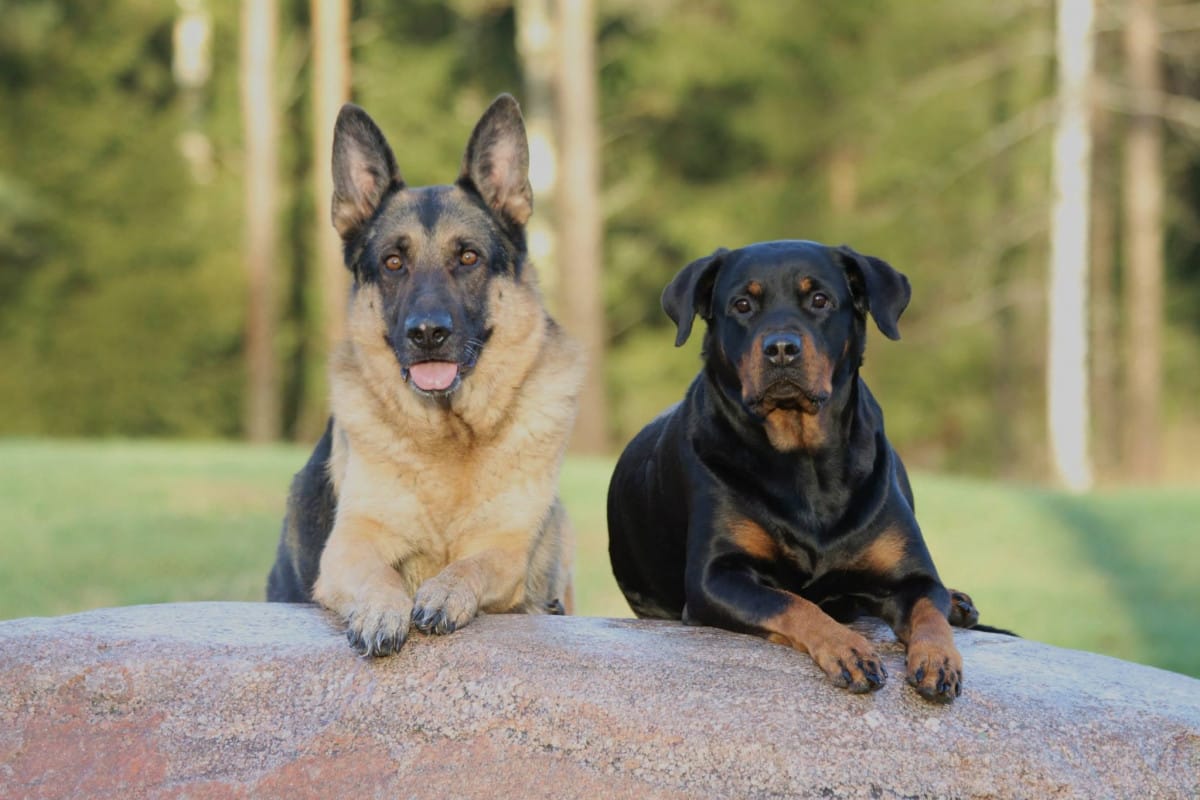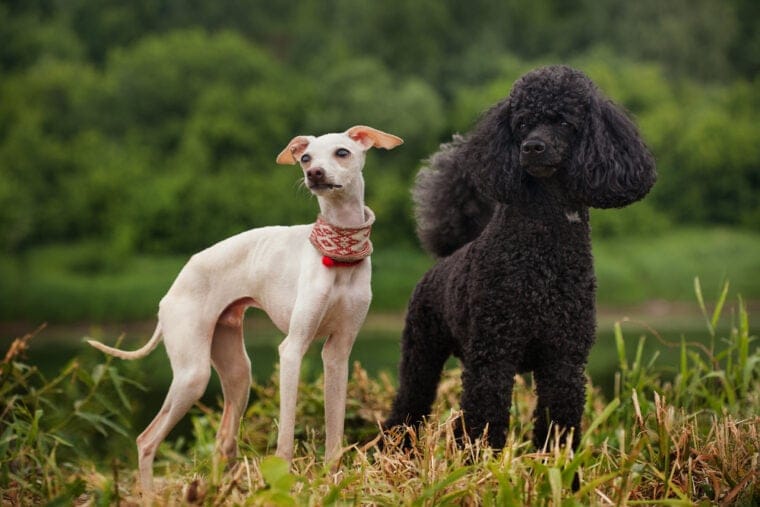Dog breeds come in all shapes and sizes, and each breed has its own unique set of characteristics and temperament. But have you ever stopped to consider what your choice of dog breed says about you? It turns out that the breed of dog you choose can reveal a lot about your personality, lifestyle, and even your values.
For example, if you own a Golden Retriever, you are likely seen as friendly, outgoing, and family-oriented. On the other hand, if you own a Chihuahua, you may be perceived as confident, independent, and perhaps a bit of a diva. These stereotypes may not be entirely accurate, but they do provide some insight into how different dog breeds are perceived by society.
In this article, we will take a closer look at what your dog breed says about you. We will explore the most popular breeds and their associated stereotypes, as well as dig deeper into the research behind these perceptions. Whether you are a lifelong dog owner or considering getting a furry companion for the first time, this article will provide valuable insights into the fascinating world of dog breeds and their human counterparts.

The Psychology Behind Dog Breed Preferences
When it comes to choosing a dog breed, many people have a specific type in mind. Whether it's a small lap dog or a large, active breed, the preference for certain dog breeds can say a lot about a person's personality and lifestyle. Here are some factors that may influence why someone chooses a particular dog breed.
Personality Traits and Dog Breeds
Research has shown that there may be a correlation between a person's personality traits and their preferred dog breed. For example, people who are more introverted and prefer to spend time alone may be drawn to breeds like the Shih Tzu or the Bichon Frise, which are known for being affectionate and low-energy. On the other hand, people who are more outgoing and active may prefer breeds like the Labrador Retriever or the Border Collie, which are known for their high energy levels and love of exercise.
Choosing a Breed: Lifestyle Considerations
Another important factor in choosing a dog breed is lifestyle considerations. People who live in apartments or small homes may prefer breeds that are smaller in size and require less exercise, such as the Chihuahua or the French Bulldog. Those who live in larger homes with yards may prefer larger breeds like the Golden Retriever or the German Shepherd, which require more space to run and play.
Additionally, people who work long hours or travel frequently may prefer breeds that are more independent and don't require constant attention, such as the Greyhound or the Basenji. Those who work from home or have more free time may prefer breeds that are more social and require more attention, such as the Cavalier King Charles Spaniel or the Poodle.
Overall, the decision to choose a particular dog breed is a personal one that can be influenced by a variety of factors, including personality, lifestyle, and personal preferences. By understanding the psychology behind dog breed preferences, individuals can make a more informed decision when choosing a furry companion.
Common Dog Breeds and Associated Personalities

Labrador Retriever: Friendly and Outgoing
Labrador Retrievers are one of the most popular dog breeds in the world, and for good reason. They are known for their friendly and outgoing personalities, making them great family pets. Labradors are also highly intelligent and easy to train, which makes them ideal for various tasks such as search and rescue, hunting, and therapy work.
Their friendly nature makes them great with children, and they are known for their patience and tolerance. Labradors are also highly social and love being around people, which means they can suffer from separation anxiety if left alone for long periods.
German Shepherd: Loyal and Protective
German Shepherds are known for their loyalty and protective nature, which makes them excellent guard dogs. They are highly intelligent and trainable, which makes them ideal for various tasks such as police work, search and rescue, and therapy work. German Shepherds are also fiercely loyal to their owners and will do anything to protect them.
Their protective nature means that they can be wary of strangers, but with proper socialization and training, they can learn to be friendly with everyone. German Shepherds are also highly active and require plenty of exercise and mental stimulation to keep them happy and healthy.
French Bulldog: Playful and Affectionate
French Bulldogs are known for their playful and affectionate personalities, which makes them great family pets. They are highly social and love being around people, which means they can suffer from separation anxiety if left alone for long periods.
French Bulldogs are also highly adaptable and can thrive in small spaces such as apartments. They are also low maintenance in terms of exercise requirements, which makes them ideal for people who have busy lifestyles. However, their short snouts mean that they can suffer from breathing problems, and they are prone to obesity if not properly exercised and fed.
| Breed | Personality Traits | Ideal For |
|---|---|---|
| Labrador Retriever | Friendly, outgoing, patient, highly trainable | Families with children, search and rescue, therapy work |
| German Shepherd | Loyal, protective, highly trainable | Guard dogs, police work, search and rescue |
| French Bulldog | Playful, affectionate, adaptable | Small spaces, low maintenance, busy lifestyles |
Analyzing Dog Breed Stereotypes

Societal Perceptions and Breed Popularity
Societal perceptions of certain dog breeds can often influence their popularity. For example, breeds such as the German Shepherd and Rottweiler are often associated with aggression and are therefore viewed negatively by some people. On the other hand, breeds such as the Golden Retriever and Labrador Retriever are viewed as friendly and loyal, making them popular family pets.
Breed popularity can also be influenced by media representation. For instance, after the release of the movie " 101 Dalmatians", there was a surge in demand for Dalmatians as pets. However, this sudden popularity caused many people to adopt Dalmatians without fully understanding the breed's needs, leading to an increase in abandoned and neglected Dalmatians.

Overcoming Breed Stigmas
It is important to remember that breed stereotypes are just that - stereotypes. Not all dogs of a certain breed will exhibit the same behavior or personality traits. It is important to judge each dog as an individual and not solely based on their breed.
One way to overcome breed stigmas is through education. Educating oneself on a breed's specific needs and temperament can help break down negative stereotypes and promote responsible pet ownership. Additionally, socialization and training can help prevent negative behaviors in dogs, regardless of breed.
In conclusion, while breed stereotypes may influence societal perceptions and popularity, it is important to remember that each dog is an individual. By educating oneself and promoting responsible pet ownership, breed stigmas can be overcome.
What Your Dog's Behavior Says About You
Training Styles and Owner Personality
The way a dog is trained can often reflect the personality of their owner. For example, if an owner is strict and assertive, they may use a more authoritarian style of training, which can lead to a dog becoming more dominant and aggressive. On the other hand, if an owner is more laid-back and relaxed, they may use a more permissive style of training, which can lead to a dog becoming more submissive and obedient.
Dog owners who use positive reinforcement training, such as rewarding good behavior with treats or praise, tend to be more patient and nurturing. They value building a strong bond with their dog and prioritize the dog's well-being over their own convenience. Conversely, dog owners who use punishment-based training, such as physical corrections or scolding, tend to be more controlling and less empathetic towards their dog's needs.
Dog Behavior as a Reflection of Owner's Emotions
Dogs are highly intuitive animals and can often pick up on their owner's emotions. If an owner is anxious or stressed, their dog may become anxious or exhibit destructive behavior. If an owner is calm and relaxed, their dog may also exhibit a more relaxed and content demeanor.
Furthermore, a dog's behavior can also reflect their owner's emotional state. For example, if an owner is consistently neglectful or abusive towards their dog, the dog may become fearful or aggressive. On the other hand, if an owner is loving and attentive towards their dog, the dog may become more affectionate and well-behaved.
In conclusion, a dog's behavior can reveal a lot about their owner's personality and emotional state. By understanding the connection between dog behavior and owner behavior, dog owners can work towards creating a healthy and positive relationship with their furry companion.
The Impact of Dog Ownership on Self-Identity

The Role of Dogs in Personal Branding
Owning a dog can have a significant impact on one's self-identity. Dogs are often seen as an extension of their owner's personality and lifestyle. They can be used as a way to express oneself and create a personal brand. For example, owning a certain breed of dog can convey a certain image or status to others.
In a study conducted by the American Kennel Club, it was found that people often choose a dog breed based on their own personality traits. For instance, those who are outgoing and sociable might choose a breed that is known for being friendly and approachable, such as a Labrador Retriever or a Golden Retriever. On the other hand, those who are more reserved and introverted might choose a breed that is more independent and low-maintenance, such as a Chihuahua or a Shih Tzu.
Dogs as Extensions of Self
Dogs can also be seen as extensions of their owner's self. They are often treated as family members and given a significant amount of attention and care. Owners may project their own emotions and feelings onto their dogs, and in turn, their dog's behavior may reflect their own personality traits.
For example, a person who is anxious or stressed may have a dog that exhibits similar behaviors, such as constant barking or restlessness. Alternatively, a person who is calm and relaxed may have a dog that is well-behaved and easy-going.
Overall, owning a dog can have a profound impact on one's self-identity. It can be a way to express oneself and create a personal brand, as well as a reflection of one's own personality and emotions.
Choosing the Right Dog Breed for You
When it comes to choosing a dog breed that suits your personality and lifestyle, it's important to assess compatibility with breed characteristics and do thorough research.
Assessing Compatibility with Breed Characteristics
Different dog breeds have different temperaments, energy levels, and grooming needs. It's essential to consider these factors before making a decision. For instance, if you're an active person who loves to spend time outdoors, a high-energy breed like a Border Collie or a Labrador Retriever may be a good fit. However, if you prefer a more laid-back lifestyle, a breed like a Basset Hound or a Bulldog may be a better option.
It's also important to consider the size of the dog breed you're interested in. Larger breeds like Great Danes or Saint Bernards may require more space and exercise, while smaller breeds like Chihuahuas or Pugs may be better suited for apartment living.
The Importance of Breed Research
Before choosing a dog breed, it's essential to do thorough research to ensure you're making an informed decision. This includes researching breed characteristics, health issues, and training requirements.
Talking to breeders, veterinarians, and other dog owners can also provide valuable insights into the breed you're interested in. Additionally, attending dog shows and events can give you a chance to interact with different breeds and get a better understanding of their personalities and needs.
By taking the time to assess compatibility with breed characteristics and doing thorough research, you can choose a dog breed that's a perfect match for your lifestyle and personality.
The Cultural Significance of Dog Breeds

Historical Associations with Dog Breeds
Dog breeds have been associated with specific cultures and historical periods for centuries. For example, the Greyhound was revered in ancient Egypt and is often depicted in their artwork. The Poodle was popular among French nobility during the 18th century, while the German Shepherd was developed as a working dog in Germany in the late 19th century.
These historical associations have contributed to the cultural significance of dog breeds. They can also influence the way people perceive certain breeds and the qualities they associate with them.
Regional Preferences and Their Meanings
Regional preferences for certain dog breeds can also have cultural significance. For example, in the United States, the Labrador Retriever is the most popular breed, and it is often associated with family life and outdoor activities. In Japan, the Shiba Inu is a popular breed and is associated with loyalty and good luck.
These regional preferences and associated meanings can also vary within a country. In the United States, for example, the popularity of certain breeds can differ depending on the region. This can reflect cultural differences and values between different parts of the country.
Overall, the cultural significance of dog breeds is complex and multifaceted. It is influenced by historical associations, regional preferences, and individual perceptions. Understanding these cultural associations can provide insight into the way people view and interact with different dog breeds.

The Future of Dog Breeding and Owner Relationships
As society evolves, so does the relationship between dogs and their owners. The future of dog breeding and owner relationships is likely to be influenced by a number of factors, including changes in lifestyle, advances in technology, and shifting attitudes towards animal welfare.
One trend that is likely to continue in the future is the increasing popularity of designer dog breeds. These are dogs that have been bred specifically to combine the best traits of two or more existing breeds. While some people argue that this is a form of genetic engineering that can lead to health problems, others see it as a way to create dogs that are perfectly suited to their owners' needs and lifestyles.
Another trend that is likely to continue is the use of technology to improve the health and wellbeing of dogs. This could include the development of new diagnostic tools that can detect diseases early, as well as the use of wearable technology to monitor dogs' activity levels and overall health.
Finally, there is likely to be a continued focus on animal welfare in the future. This could include increased regulation of dog breeding practices, as well as greater emphasis on responsible ownership and the importance of providing dogs with a safe and loving home.
Overall, the future of dog breeding and owner relationships is likely to be shaped by a combination of technological advances, changing attitudes towards animal welfare, and the evolving needs and lifestyles of dog owners. As these trends continue to develop, it will be important for breeders and owners alike to stay informed and adapt to the changing landscape of dog ownership.

Frequently Asked Questions
- How might owning a Doberman reflect on my personality traits?
- Owning a Doberman can suggest that you are a confident and assertive person. Dobermans are known for their loyalty and protectiveness, so owning one may also indicate that you value these traits in yourself and in others. However, it is important to note that owning a particular breed does not determine all aspects of one's personality.
- What do stereotypes suggest about Rottweiler owners?
- Unfortunately, Rottweilers have been unfairly stigmatized as aggressive and dangerous dogs. As a result, stereotypes suggest that Rottweiler owners may be perceived as tough or intimidating individuals. However, it is important to recognize that these stereotypes do not accurately reflect the true nature of the breed or its owners.
- In what ways does choosing a Border Collie indicate my lifestyle or character?
- Border Collies are highly intelligent and active dogs that require a lot of mental and physical stimulation. Choosing a Border Collie may suggest that you lead an active lifestyle and enjoy spending time outdoors. Additionally, their intelligence and trainability may indicate that you value intelligence and obedience in both yourself and others.
- What can be inferred about me from my preference for French Bulldogs?
- French Bulldogs are known for their affectionate and playful personalities, which may suggest that their owners value companionship and enjoy spending time with loved ones. Additionally, French Bulldogs are a popular choice among city dwellers due to their small size and adaptability to apartment living.
- What does opting for a Belgian Malinois suggest about my temperament?
- Belgian Malinois are highly intelligent and energetic dogs that require a lot of physical and mental stimulation. Opting for a Belgian Malinois may suggest that you are an active and disciplined individual who values hard work and dedication. However, it is important to note that this breed requires a lot of training and socialization in order to thrive.
- Are there common personality traits among Bernese Mountain Dog enthusiasts?
- Bernese Mountain Dogs are known for their gentle and calm personalities, which may suggest that their owners value peace and tranquility. Additionally, their loyalty and affectionate nature may indicate that their owners value close relationships with loved ones. However, it is important to recognize that each individual dog and owner is unique and cannot be fully defined by breed stereotypes.




